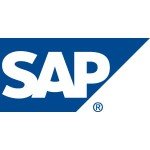Visit the CenturyLink resource center for relevant briefs and reports to help you better manage your enterprise. Learn how smart businesses harness the power of customer data to improve satisfaction and sales: Unleashing the Power of Customer Data.
 The changes in U.S. copyright law over the past three years affect the way damages are assessed. When a party is found guilty of infringement of copyright (which runs deeper than mere violation), the test now is the extent to which the infringed party is less able to license its intellectual property than it had planned back before it was infringed.
The changes in U.S. copyright law over the past three years affect the way damages are assessed. When a party is found guilty of infringement of copyright (which runs deeper than mere violation), the test now is the extent to which the infringed party is less able to license its intellectual property than it had planned back before it was infringed.
In other words, if you weren’t going to sell something in the first place, you can’t claim lost sales. That’s what SAP argued after a jury awarded Oracle a record $1.3 billion, after finding SAP guilty of copyright infringement for tapping into Oracle’s servers for product support data. Today, a federal court judge struck down that verdict, stating it didn’t match the circumstances.
SAP was the corporate parent of an IT support service called TomorrowNow. Clients of TomorrowNow who had Oracle software counted on that service to provide product support, which they thought included software updates. As it turned out, the jury found, TN had hacked into Oracle’s servers to obtain those updates and provide them to Oracle’s customers – or perhaps some others as well. SAP’s defense had mostly boiled down to stating most or all of the transgressions took place prior to it having acquired TN.
Certainly the loss consisted of Oracle’s intellectual property, but the value of that property, District Court Judge Phyllis J. Hamilton determined, cannot be measured based on how much it might sell for if it wasn’t being sold, or wasn’t going to be sold.
SAP argues that it is entitled to judgment as a matter of law that Oracle is not entitled to actual damages for copyright infringement in the form of a hypothetical license, because Oracle did not establish that, but for infringement, it would have licensed the asserted copyrighted works for the use at issue, and because Oracle did not present evidence sufficient to value such a license, with the result that the award was based on undue speculation.
The Copyright Act allows recovery of either statutory damages, or “actual damages suffered by [the copyright owner] as a result of the infringement” plus “any profits of the infringer that are attributable to the infringement and are not taken into account in computing the actual damages.” … Because actual damages must be suffered “as a result of the infringement,” and recoverable profits must “be attributable to the infringement,” … the plaintiff bears the burden of proving the causal connection between the infringement and the monetary remedy sought… Actual damages are generally determined by the loss in the fair market value of the copyright, “measured by the profits lost due to the infringement or the value of the use of the copyrighted work to the infringer.”
The jury was given the option of using a fair market value scale or a lost profits scale for assessing damages, and it chose the former. In earlier testimony, an Oracle expert witness offered the court a “hypothetical example” of a licensing agreement with Oracle’s own rivals – PeopleSoft, Siebel, and JDE. Had such an agreement ever been reached in the real world, it would have been an extraordinary occasion, and perhaps continents would have shifted.
Oracle’s own expert had calculated its loss in terms of potential licensing customers, presenting a figure of $408.7 million. SAP’s expert had argued only $28 million. Now, Judge Hamilton has ordered that the entire matter be retried, unless Oracle agrees to a settlement offer now of $272 million.
Posted in
and tagged with
- Comment
- Subscribe
- E-mail This
- Print This
- Digg
 Share
Share
The changes in U.S. copyright law over the past three years affect the way damages are assessed. When a party is found guilty of infringement of copyright (which runs deeper than mere violation), the test now is the extent to which the infringed party is less able to license its intellectual property than it had planned back before it was infringed.nnIn other words, if you weren’t going to sell something in the first place, you can’t claim lost sales. That’s what SAP argued after a jury awarded Oracle a record $1.3 billion, after finding SAP guilty of copyright infringement for tapping into Oracle’s servers for product support data. Today, a federal court judge struck down that verdict, stating it didn’t match the circumstances.
Please enable JavaScript to view the comments powered by Disqus.
Article source: RRW http://feedproxy.google.com/~r/readwriteweb/~3/dn-6lQRomp8/court-tosses-13-b-oracle-award.php